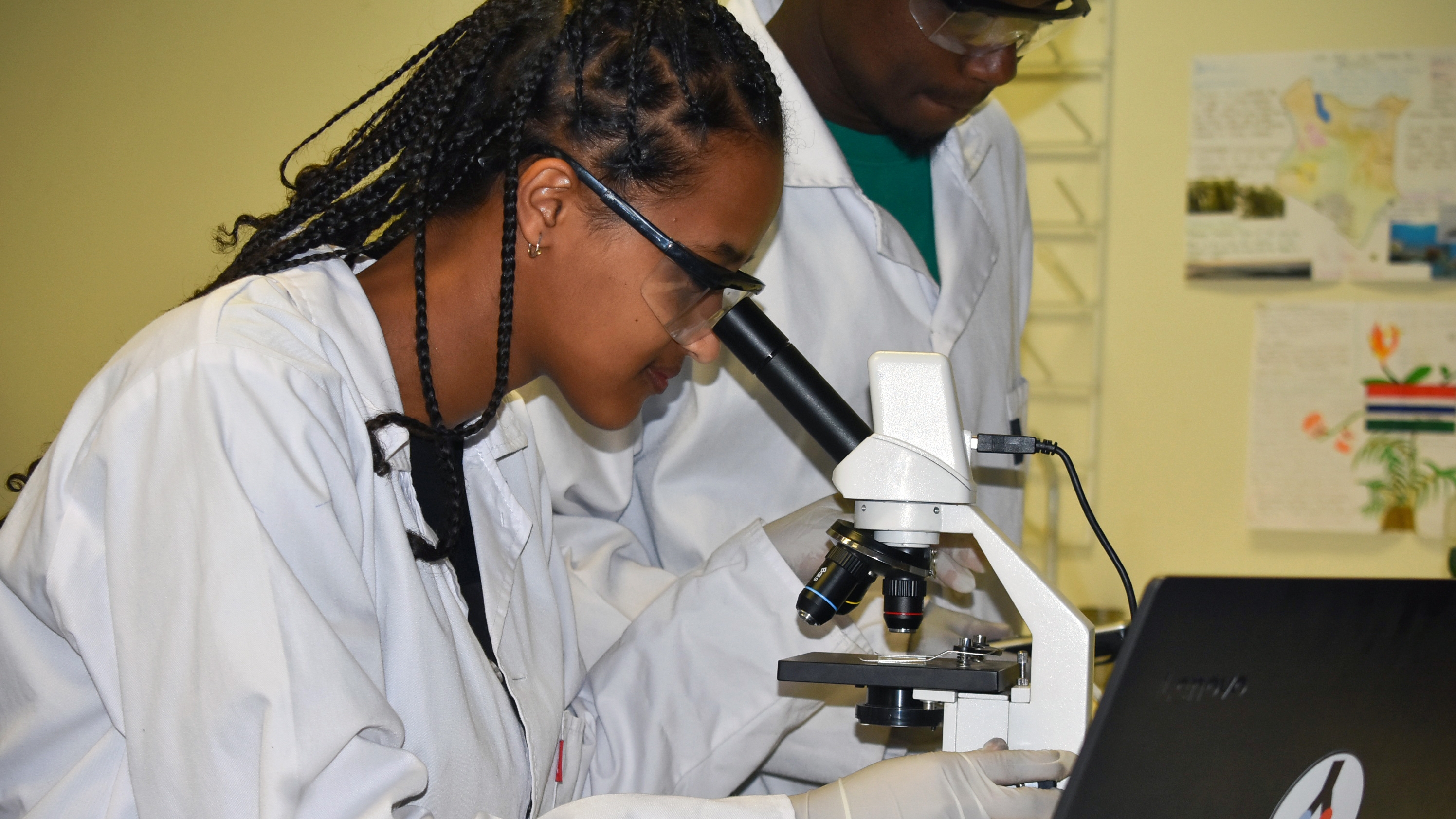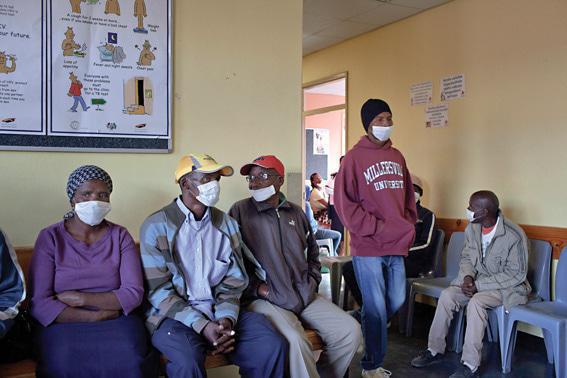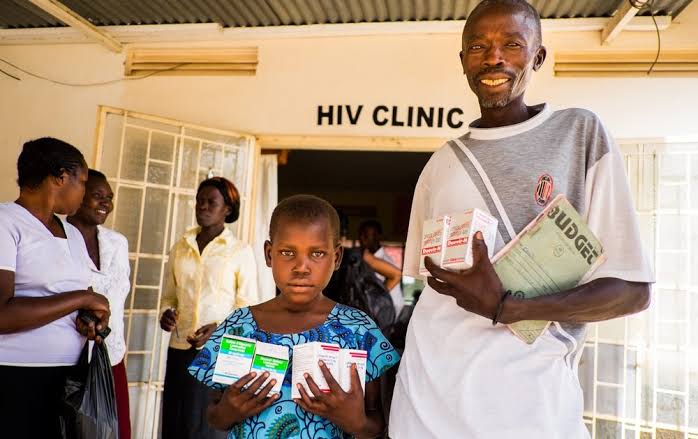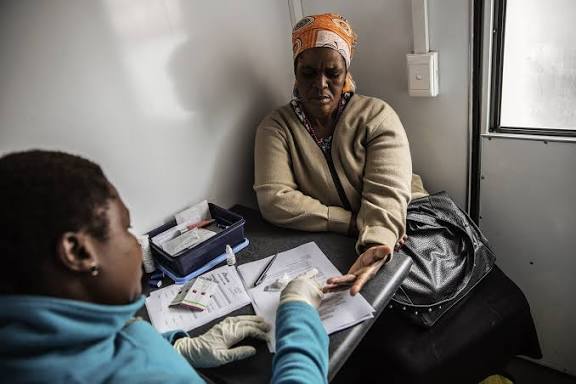Africa's New Frontier in Disease Research: Local Scientists Are Making Waves in Global Medicine.

A scientific momentum is taking place across Africa. This is the rising wave of scientific discovery driven by researchers who know the continent's medical realities from the inside. African scientists in Johannesburg's labs to Stellenbosch's research hubs are teasing out biological patterns the world has missed, constructing treatments shaped by lived experience in their communities, and challenging long-held assumptions about how global medicine should work.
These are not isolated findings. Taken together, they reflect a growing scientific movement, one that places Africa as a source of solutions with global implications.
Inhalable Nanomedicine for Tuberculosis: A Breath of Innovation
In the corridors at the University of the Witwatersrand, the air carries a different kind of urgency. Tuberculosis has been a relentless force on the continent, a disease older than colonialism, even older than the borders drawn across Africa, and to this day one of its deadliest.
South Africa knows this all too well, as the country has one of the highest TB burdens in the world. Its treatment is long, grueling, and unforgiving: four to six pills a day for six months or more. Miss a few doses, and the bacteria reorganize themselves into drug-resistant forms that are greatly harder and more expensive to treat.
Ask any clinician working in a township clinic and they'll confirm that; many patients stop treatment because life gets in the way in the form of long commutes, unstable incomes, food insecurity, stigma, or simply the physical exhaustion of taking medicine every day for months.

That's the world into which Wits researchers introduced their breakthrough; an inhalable nanomedicine designed to deliver TB drugs straight into the lungs.
The idea is elegantly simple: If TB attacks the lungs, why make the medicine take the scenic route via the stomach, liver, and bloodstream?
Using nanoparticles engineered to release medication slowly and steadily, the formulation bypasses every biological detour. The patient inhales the treatment through a device similar to an asthma inhaler and the medicine lands precisely where it’s needed-the infected lung tissue.
There are no complicated dosing schedules, no long courses of multiple pills and no reliance on a patient’s ability to maintain consistency in an unstable life.
This approach could redefine TB care in Africa, if clinical trials continue to show strong results, by reducing treatment length, improving adherence, and slowing the rise of drug-resistant strains.
And it is important to note that leading this charge are African scientists, not foreign laboratories.
Unraveling the Mystery of Long COVID: Microclots, NETs, and the Breakthrough in South Africa
For millions of people around the world, the pandemic didn't end when the lockdowns did. Long COVID has left healthcare workers baffled and patients exhausted, trapped in cycles of symptoms that come and go without warning.
After three years, medicine still had no unifying explanation, until a team from Stellenbosch University uncovered a mechanism that had been overlooked until then.
Inside the blood of Long COVID patients, researchers found two culprits working in tandem:
Microclots; Tiny, stubborn clumps of fibrin resistant to natural dissolution block even the smallest blood vessels.
Neutrophil Extracellular Traps (NETs); Webs of white blood cells, which are supposed to catch pathogens, and not stick around indefinitely in healthy tissue.
It was then that the Stellenbosch team discovered that these two components were not randomly coexisting; they were structurally linked, reinforcing one another and making it more difficult for the body to clear them.
The implications are profound.
In effect, when the blood flow is clogged at the micro level, the body struggles to deliver oxygen efficiently. That means fatigue, breathlessness, chest discomfort, and “brain fog” which are all hallmark symptoms of Long COVID.
But what really makes this discovery even more compelling, though, is the humanity that underlines it. Most of the patients participating in this research weren't data points; they were humans who for so long had been dismissed, told that their symptoms were "in their head" or "stress-related."
To them, this breakthrough is validation.
By identifying a physical, measurable mechanism, African researchers added a missing piece to the global puzzle of post-viral illness. And they did it with a level of detail and biological insight that has put the international research community on alert.
The HIV Body Clock: How the Virus Disrupts Sleep Across the Continent
For over four decades, HIV has shaped Africa's public health narrative. But the new frontier of HIV research focuses on viral suppression; a milestone which antiretroviral therapy has made possible for millions and on quality of life.
Now, this is where sleep enters the story.
A recent multi-institutional effort, whose members included researchers from Wits University, found that HIV can perturb the body's natural circadian rhythm; the internal clock that regulates sleep, hormone cycles, body temperature and metabolism, and determines alertness.
The disruption that the virus causes, even when it is well-controlled on medication, often makes people living with HIV feel as though they are in the wrong time zone at all times; a sort of biological jet lag that never ends.
For many patients, the symptoms are subtle but relentless. Sleep disturbances, inability to stay asleep, fragmented nights, daytime fatigue, irritability or mood changes, reduced concentration and fluctuations in hormones that weaken immunity.

The finding shifts the research on HIV into a more holistic realm. It recognizes something that patients have tried to articulate for years: that managing HIV is about the virus; about the body it lives in, the rhythms it influences, and the daily functioning it interrupts.
Another reason this is important research is that sleep is intricately connected with overall health outcomes. Poor sleep can exacerbate inflammation, lower the efficacy of antiretroviral therapy, and affect mental health.
By introducing circadian science to HIV treatment, African researchers are expanding the conversation and underlining the fact that longevity without wellbeing is not true progress.
A Continental Reframing
These discoveries have pointed out a larger fact about African science when placed into perspective. A fact that had long been overshadowed by an expired narrative.

In decades, global health conversations framed Africa as a place where diseases happen, not a place where solutions emerge. The research was often foreign-led, exported abroad for analysis, and then reimported in the form of policy or interventions.
But the landscape is changing.
Institutions like Wits, Stellenbosch, Makerere, Ibadan, and the Noguchi Institute are producing world-class research in epidemiology, nanomedicine, immunology, infection biology, computational science, and more.
African scientists are creating new areas of investigation altogether.
They ask questions that nobody else is asking because they see patterns that no one else can see. They're designing treatments rooted in lived realities. They're running experiments informed by cultural context. They’re building knowledge from the ground up. This is structural.
As the world grapples with drug-resistant bacteria, emerging viruses and chronic post-viral conditions, young, agile research ecosystems in Africa unencumbered by the weight of old academic hierarchies are yielding insights of global influence. The continent is building diagnostic innovations, pioneering pathogen-genomics tools, expanding vaccine manufacturing, and investing in cross-discipl
inary medical science at an unprecedented scale.
Recommended Articles
There are no posts under this category.You may also like...
When Sacred Calendars Align: What a Rare Religious Overlap Can Teach Us

As Lent, Ramadan, and the Lunar calendar converge in February 2026, this short piece explores religious tolerance, commu...
Arsenal Under Fire: Arteta Defiantly Rejects 'Bottlers' Label Amid Title Race Nerves!

Mikel Arteta vehemently denies accusations of Arsenal being "bottlers" following a stumble against Wolves, which handed ...
Sensational Transfer Buzz: Casemiro Linked with Messi or Ronaldo Reunion Post-Man Utd Exit!

The latest transfer window sees major shifts as Manchester United's Casemiro draws interest from Inter Miami and Al Nass...
WBD Deal Heats Up: Netflix Co-CEO Fights for Takeover Amid DOJ Approval Claims!

Netflix co-CEO Ted Sarandos is vigorously advocating for the company's $83 billion acquisition of Warner Bros. Discovery...
KPop Demon Hunters' Stars and Songwriters Celebrate Lunar New Year Success!

Brooks Brothers and Gold House celebrated Lunar New Year with a celebrity-filled dinner in Beverly Hills, featuring rema...
Life-Saving Breakthrough: New US-Backed HIV Injection to Reach Thousands in Zimbabwe

The United States is backing a new twice-yearly HIV prevention injection, lenacapavir (LEN), for 271,000 people in Zimba...
OpenAI's Moral Crossroads: Nearly Tipped Off Police About School Shooter Threat Months Ago
ChatGPT-maker OpenAI disclosed it had identified Jesse Van Rootselaar's account for violent activities last year, prior ...
MTN Nigeria's Market Soars: Stock Hits Record High Post $6.2B Deal

MTN Nigeria's shares surged to a record high following MTN Group's $6.2 billion acquisition of IHS Towers. This strategi...
